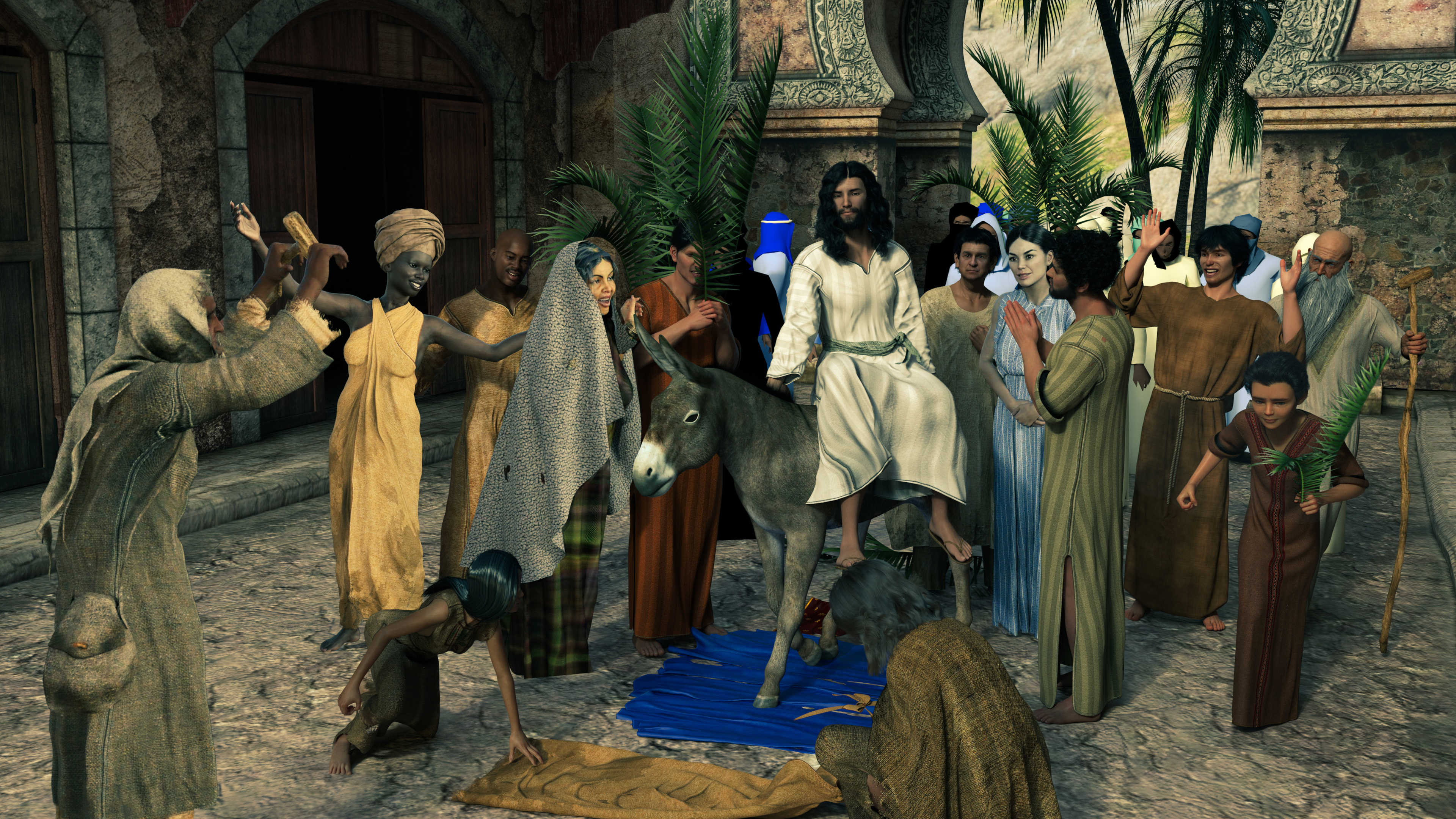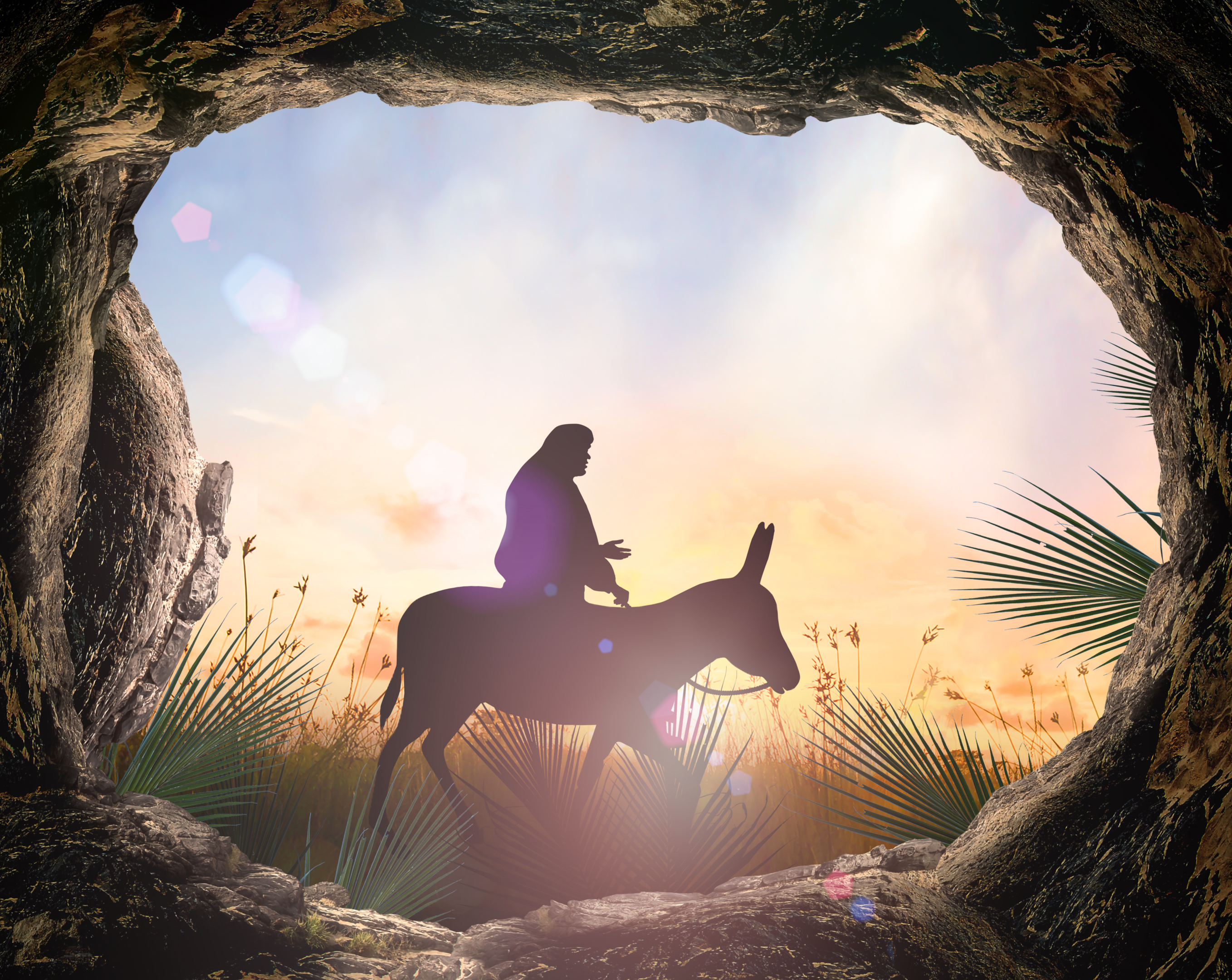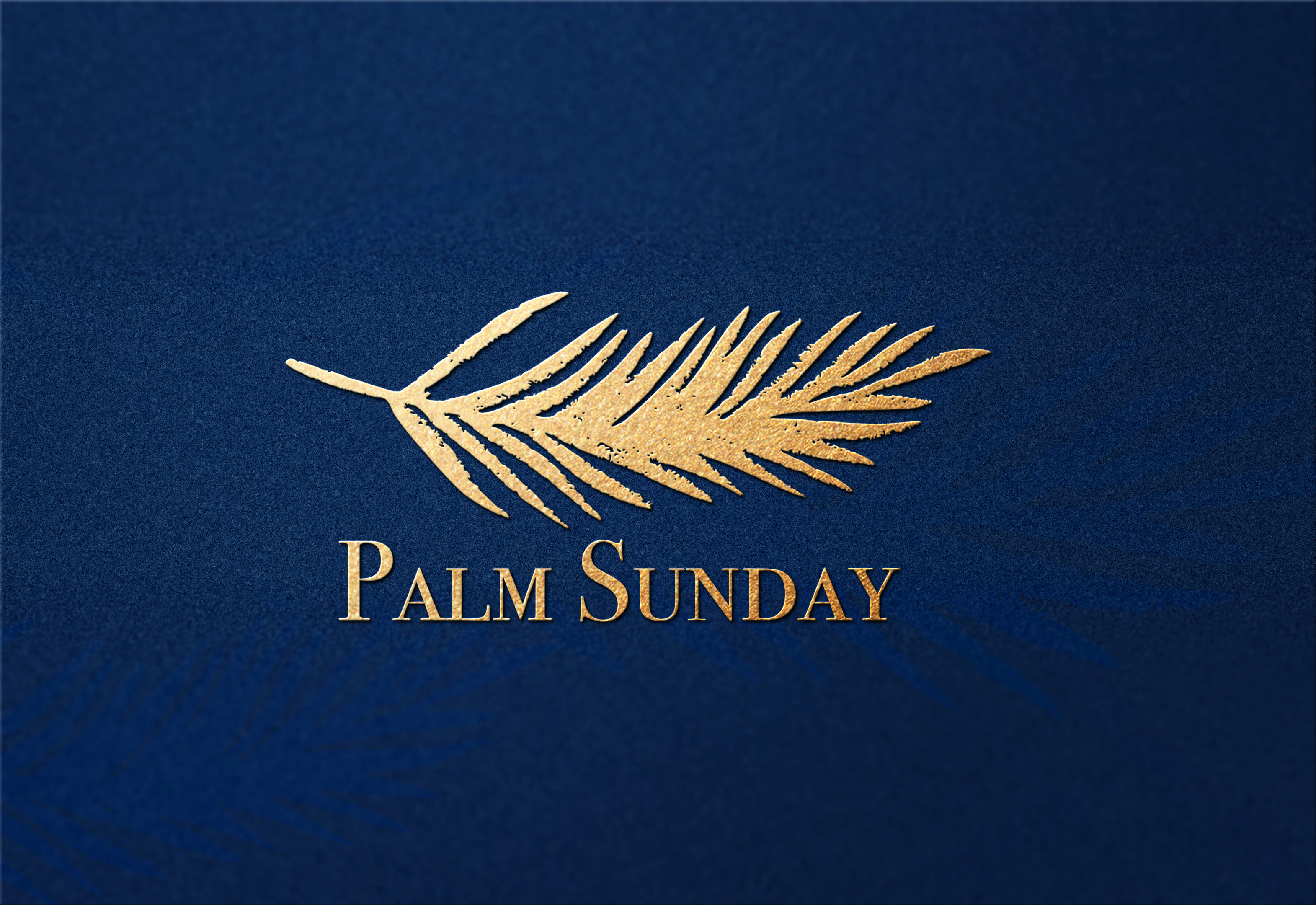5 Things about Palm Sunday That Remind Us Christ Is King

5 Things about Palm Sunday That Remind Us Christ Is King
Palm Sunday is the celebration of Christianity which marks the beginning of Easter. The celebration marks Christ's triumphant entry into Jerusalem, where people laid down palm leaves and trees in honor. Church congregations hold Palm-Saturday celebrations where Christians have received a palm tree or cross from palm branches. It includes singing hymns or reading scripture and sometimes even an elaborate procession in palm. Palm Sunday teaches the selfless love Jesus showed when his life was sacrificed for us and reflects on our lives.
How Do Christians Celebrate Palm Sunday Traditionally?
What is Christian tradition? That depends on what congregation. Several churches celebrated Palm Sunday. Most churches on Palm Sunday will give sermons about Jesus' triumph. Others may have children wave palm branches across the aisle or sing songs with the Hebrew name Hosanna. Several of our friends are watching Livestreaming from their homes. Crosswalk offers some great suggestions for a good way of celebrating Palm Sunday.

Palm Sunday in the Bible
The events causing Palm Sunday were described in the four canonical gospels and there were no significant differences in the account. Jesus' request to bring a donkey is described in Mark 11:1-3, showing Jesus purposeful use.

Palm Sunday Celebration and Traditions in Church History
Palm Saturday was started at the Jerusalem Church around the end of 3rd Century. During the visit, the participants sang hymnal prayers, and sung the Bible. At the last place, the place where Jesus rose to heaven, it will be cited as the biblical passage from the victory over Jerusalem. As night approached, the crowd swarmed in a circle stating: “He is blessed by God” (Malachi 21:8). These traditions were continuing until the fifth et seventh centuries with ceremonies of blessing of hands.

What is the lesson of Palm Sunday?
Palm Sunday taught me something: Everyone can experience dramatic change overnight in fortune or life. But, Easter taught that God remembered this.

How do you celebrate Palm Sunday?
Palm Sunday usually includes procession and distribution of a blessed palm leaf. Some churches use the palms saved and burnt for Ash Wednesday in the New Year. The palms are sometimes folded together as crosses in Christian houses.

Why did they lay palm leaves down for Jesus?
Palm Sunday is commemorating Jesus'abroad arrival in Jerusalem. As he went into city with a donkey his supporters gathered palms around the feet naming him "the Savior." Palm branches had a place in history as a symbol of triumph.

Palm Sunday Bible Story - Triumphal Entry
Matthew 21:1-4 – Jesus comes as king When the disciples entered Jerusalem and arrived in Bethphage on Mount Olives, Jesus sent two disciples and said to them, “Give up the town ahead and soon a donkey will come to you.”. It occurred as a fulfillment of what had been spoken by the prophet.
Unraveling the Enigma of Palm Sunday: Exploring its Significance and Celebratory Traditions
We've all heard of it, but the lingering question remains: what is Palm Sunday and why do we celebrate it? This Christian holiday is not only steeped in symbolism and tradition but also serves as a cornerstone in the Christian calendar, commencing the Holy Week leading up to Easter Sunday. To illuminate the mysteries of this sacred day, we delve into its origins, the significance of palm branches, and the ways in which Christians around the world celebrate Palm Sunday.
The Triumphal Entry: A Pivotal Moment in the Life of Jesus Christ
At the heart of Palm Sunday lies the triumphal entry of Jesus Christ into Jerusalem. It was on this day that Jesus rode into the city on a young, riding on a donkey back, fulfilling the Old Testament prophecies. As He approached, a very large crowd spread their cloaks on the road, while others cut branches from palm trees, laying them before Him. The people hailed Jesus as the Son of David comes in the name, a messianic title, proclaiming, "Hosanna to the Son of David! Blessed is He who comes in the name of the Lord! Hosanna in the highest heaven!"
From this momentous event, Palm also comes in the praise god and comes in the name, of the Lord. Sunday marks the day Jesus entered Jerusalem, a significant milestone in His life and mission. As Christians, we celebrate this day to remember and honor Christ's entry into the city and to reflect on the lessons of love, humility, and sacrifice that Jesus embodies.
The Symbolism of Palm Branches and their Role in Palm Sunday Liturgies
When it comes to understanding the role of palm fronds and branches in this sacred day, one must first grasp their ancient symbolism. To the Israelites, palm leaves and fronds represented victory and triumph – an emblem befitting the King of Kings. Today, palm fronds and branches continue to play a central role in Palm Sunday liturgies across Christian denominations, including Catholic, Orthodox, Episcopal, and Anglican churches.
In many western churches, palm branches are blessed and distributed to the name of the Lord by congregation, often fashioned into crosses or woven into intricate designs as tangible expressions of devotion. The faithful then participate in a morning procession, holding palm branches and reenacting the jubilant entry of Jesus into Jerusalem. This act of waving palms and collectively remembering the triumphant entry serves not only to bond Christians across the globe but also to provide an opportunity for reflection and spiritual growth.
Christian Traditions and the Celebration of Palm Sunday around the World
From its roots as a simple commemoration of Jesus' entry into Jerusalem, the celebration of Palm Sunday has blossomed into a rich tapestry of customs and traditions that vary across different Christian communities. In the Catholic Church, for example, the liturgy begins with a procession, the faithful holding palm branches and singing hymns of praise to God. Similarly, in the Orthodox Church, a procession often takes place, though the date of Palm Sunday may differ due to differences in the Christian calendar.
In the Anglican and Episcopal traditions, the Palm Sunday liturgy is marked by the distribution of laid palm branches and leaves and the reading of the Passion narrative from the Gospels. In many Christian churches, the blessed palm leaves and branches are later burned, and their ashes used for the following year's Ash Wednesday services, symbolizing the cycle of life, death, and resurrection.
The Daughter of Zion and the Foal of a Donkey: Prophetic Connections to Palm Sunday
Palm Sunday's significance is further heightened by its connections to Old Testament prophecies, particularly in the book of Zechariah. The prophet wrote, "Rejoice greatly, Daughter Zion! Shout, Daughter Jerusalem! See, your king comes to you, righteous and victorious, lowly and riding on a donkey, on the foal of a donkey on a colt, donkey, colt, the foal of a donkey on a colt, donkey." This prophecy was fulfilled when Jesus entered Jerusalem, riding on the foal of a donkey's colt, demonstrating His humility and reinforcing His identity as the promised Messiah.
Palm Sunday: Jesus' Triumphal Entry to Jerusalem
Palm Sundays are Christian holidays celebrated in the week before Easter. The event celebrates Jesus' victory in Jerusalem as mentioned in each of the four Gospels. Jesus went to Jerusalem knowing that he was being crucified and tried and welcomed His fate and came into heaven and saved us from sin! Palm Sunday marked the start of Holy Week - a celebration of Jesus' last days. In most churches Palm Day is celebrated by blessing and sharing palm branches representing branches placed before Christ at his entrance into Jerusalem. Let us celebrate God sending his Son on earth.
The Christian Calendar and the Significance of Holy Week
Palm Sunday holds a special place in the Christian calendar as it heralds the beginning of Holy Week, a period of intense spiritual reflection leading up to Easter Sunday. Holy Week encompasses several important days, including Maundy Thursday, which commemorates Jesus' Last Supper with His disciples; Good Friday, marking the crucifixion of Jesus; and Holy Saturday, a day of anticipation and vigil.
Palm Sunday, also called Passion Sunday in some traditions, invites Christians to embark on a collective journey towards spiritual renewal. By participating in Palm Sunday services and the various customs associated with this day, believers have the opportunity to connect with a sacred narrative that has endured for millennia and to embrace the lessons of Christ's life and sacrifice.
In Conclusion: A Celebration of Faith, Hope, and Redemption
The celebration of Palm Sunday is a powerful testament to the enduring legacy of Jesus Christ and His teachings. As we honor His triumphant entry into Jerusalem, we are reminded of the eternal life He offers and the promise of new life through His resurrection. With palm branches held high, Christians worldwide join together in praise and worship, affirming their faith in Jesus and His message of love, humility, and salvation.
By taking part in Palm Sunday and Holy Week leading up to Easter, we not only connect with a long-standing Christian tradition but also strengthen our spiritual bonds with fellow believers. Through the act of giving Jesus royal treatment, we recognize His kingship and embrace His call to follow in His footsteps, walking the path of love, compassion, and forgiveness.
Whether you attend a Catholic, Orthodox, Episcopal, or Anglican church, or belong to another Christian denomination, the celebration of Palm Sunday serves as a poignant reminder of the central tenets of our faith. As we hold palm branches and participate in these time-honored traditions, we are united in our journey towards understanding and growth, inspired by the life and teachings of Jesus Christ.
Palm Sunday: A Timeless Bridge Connecting Past and Present
As we continue to unravel the enigma of Palm Sunday, it is essential to acknowledge the timeless bridge it creates between the past and the present, allowing believers to immerse themselves in a shared history that has shaped the Christian faith. This sacred day, commemorated by millions worldwide, illustrates the unbroken chain of tradition that has been passed down through generations, enriching the lives of countless individuals along the way.
The Legacy of Palm Sunday: Strengthening Community Bonds and Cultural Heritage
Beyond its religious significance, Palm Sunday also serves as a powerful symbol of unity and cultural heritage within various Christian communities. The diverse customs and traditions of many churches that have developed around this sacred day reflect the rich tapestry of global Christianity, with each unique practice contributing to a vibrant, interconnected tapestry of faith.
For instance, in many Latin American countries, the observance of Palm Sunday is deeply ingrained in local culture, with vibrant processions and elaborate reenactments of Jesus' entry into Jerusalem. In the Philippines, the "Palaspas" tradition sees the creation of intricate palm frond artworks, which are then brought to churches for blessing.
In some parts of the world, the celebration of Palm Sunday also coincides with the arrival of spring, signifying renewal, rebirth, and the triumph of life over death. This connection to the natural world adds yet another layer of meaning to the day, emphasizing the cyclical nature of life and the hope for new beginnings.
Reflecting on the Lessons of Palm Sunday: Personal Transformation and Spiritual Growth
As we celebrate Palm Sunday, we are called to reflect on the lessons imparted by Jesus Christ during His time on earth. His teachings of love, forgiveness, and humility serve as a guide for our own personal transformation, encouraging us to examine our lives and strive for spiritual growth.
By commemorating the events that transpired during Holy Week, we can gain a deeper understanding of the sacrifice made by Jesus and the significance of His message. The journey from Palm Sunday to Easter Sunday serves as a metaphor for our own spiritual journeys, reminding us of the importance of self-examination, repentance, and the pursuit of righteousness.
The Influence of Palm Sunday on Art, Literature, and Music
The story of Jesus' triumphal entry into Jerusalem has inspired countless artists, writers, and musicians throughout history. The rich imagery and symbolism associated with Palm Sunday have been immortalized in numerous artistic forms, from magnificent frescoes and stained glass windows to powerful literary works and evocative musical compositions.
These artistic expressions not only pay homage to the events of Palm Sunday but also serve as a testament to the enduring power of Jesus' message, transcending time and cultural boundaries. By engaging with these creative works, we are given the opportunity to experience the story of Jesus' entry into Jerusalem in a deeply personal and immersive way, allowing us to connect more profoundly with the spiritual essence and holy spirit of Palm Sunday.
The Role of Palm Sunday in Interfaith Dialogue and Understanding
While Palm Sunday is primarily a Christian observance, the events that it commemorates have broader relevance and can serve as a platform for fostering interfaith dialogue and understanding. As Jesus entered Jerusalem, He was welcomed by a diverse crowd of people, reflecting the multicultural and multi-religious nature of the city.
By engaging in conversations about the shared values and beliefs that underpin different faith traditions, we can work towards fostering greater tolerance, respect, and cooperation between religious communities. In this way, Palm Sunday serves as a reminder of the importance of embracing our shared humanity, regardless of our individual religious beliefs or cultural backgrounds.
In Summary: Palm Sunday - A Tapestry of Faith, Tradition, and Connection
From its origins in the biblical story of Jesus' entry into Jerusalem to its contemporary observance by millions of believers across the globe, Palm Sunday remains a vital and deeply meaningful event in the Christian calendar. This sacred day, steeped in history and tradition, serves as a powerful reminder of the core values and teachings of Jesus Christ, offering opportunities for spiritual growth, personal transformation, and the strengthening of community bonds.
With its rich tapestry of customs and practices, Palm Sunday is a testament to the diversity and interconnectedness of the global Christian community. Its enduring legacy is felt in the countless artistic expressions inspired by the events of the day, the cultural heritage that it helps to preserve, and the opportunities it provides for interfaith dialogue and understanding.
As we reflect on the significance of Palm Sunday, we are reminded of the power of faith and the transformative potential of spiritual practice. By participating in the various customs and traditions associated with this day, we not only honor the memory of Jesus Christ but also reaffirm our commitment to living according to His teachings of love, compassion, and humility.
In our ever-changing world, the celebration of Palm Sunday provides a sense of continuity and connection, linking us with generations of believers who have come before us and strengthening our bonds with fellow Christians around the world. As we hold our palm branches aloft and retrace the steps of Jesus' triumphal entry into Jerusalem, we are given the opportunity to reflect on our own spiritual journeys and to rededicate ourselves to the pursuit of righteousness, love, and peace.
So, as we approach the sacred observance of Palm Sunday once comes in the name of the Lord and again during spring break, let us take this opportunity to delve deeper into the rich history, symbolism, and significance of this day. By doing so, we can enrich our understanding of the Christian faith, strengthen our spiritual connections, and draw inspiration from the timeless lessons imparted by Jesus Christ during His time on earth.
https://www.encounterchurchfw.org/blog/the-ministry-of-jesus
